Prince: Sixteen pivotal songs
- Published
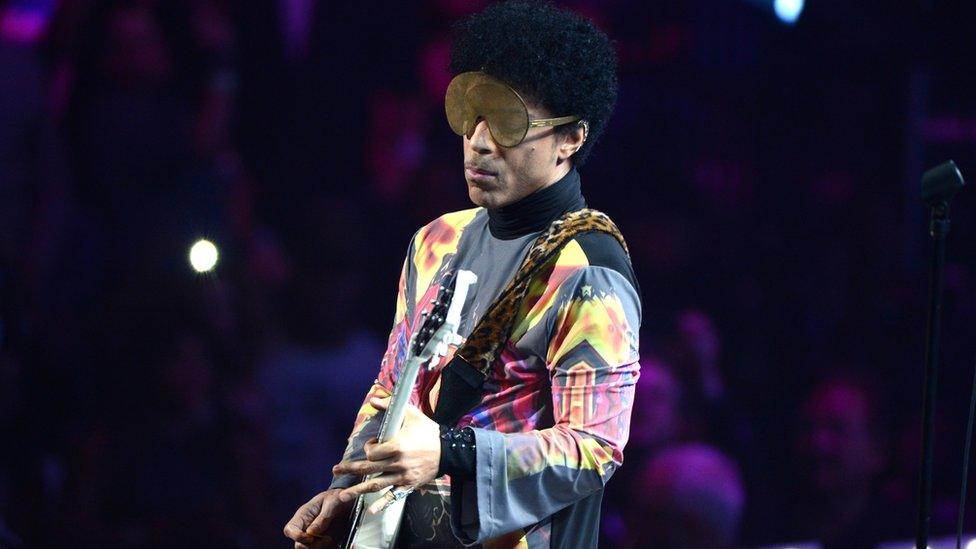
Prince released more than 30 albums in a long career
For Prince, song writing was a compulsion, an unstoppable force, and a joy.
Writing in the programme for 1992's Diamonds and Pearls tour, he explained: "There are no accidents. Music is made out of necessity. It's a fact of life. Just like breathing."
His recorded output extends to nearly 1,000 songs. Many more are thought to be stashed in a vault at Paisley Park.
It is impossible to boil that productivity down to a list of 50 or 100 songs, never mind 16 - but here's a broad (and personal) portrait of his hits, mixed with a few fan favourites.
SOFT AND WET (From the album For You, 1978)
Prince's first single sets the tone for what follows - staccato funk with a racy lyric co-written by Chris Moon, the producer who discovered the musician in Minneapolis.
But flimsy production and a conventional arrangement show a writer who is only just beginning to learn his studio craft.
DIRTY MIND (From Dirty Mind, 1980)
The title track of Prince's third album was where he really hit his stride. Recorded in his home studio, the music is pared back to its bare essentials - the raw, gritty sound finally a match for his lyrical thrust.
Reviewing the record, rock critic Robert Christgau declared: "Mick Jagger should fold up his penis and go home."
Intrigued, Jagger invited Prince to support the Rolling Stones on tour. But the musician and his band, subjected to a torrent of racial and homophobic abuse, were booed off stage.
LITTLE RED CORVETTE (From 1999, 1982)
Prince's first bona-fide classic came to him while he slept in the back of a car - not a Corvette, but a bright pink Ford Edsel owned by his bandmate Lisa Coleman.
A perfect fusion of soul and rock, it builds slowly from those mournful opening lines ("I guess I should've known by the way you parked your car sideways that it wouldn't last") to a climactic guitar solo, and Prince's trademark squeal "Ah-oh-wa".
By hiding his cruder thoughts behind a car/sex/horse-racing metaphor, the song achieved airplay ubiquity and gave Prince his first top 10 hit in the US.
WHEN DOVES CRY (From Purple Rain, 1984)
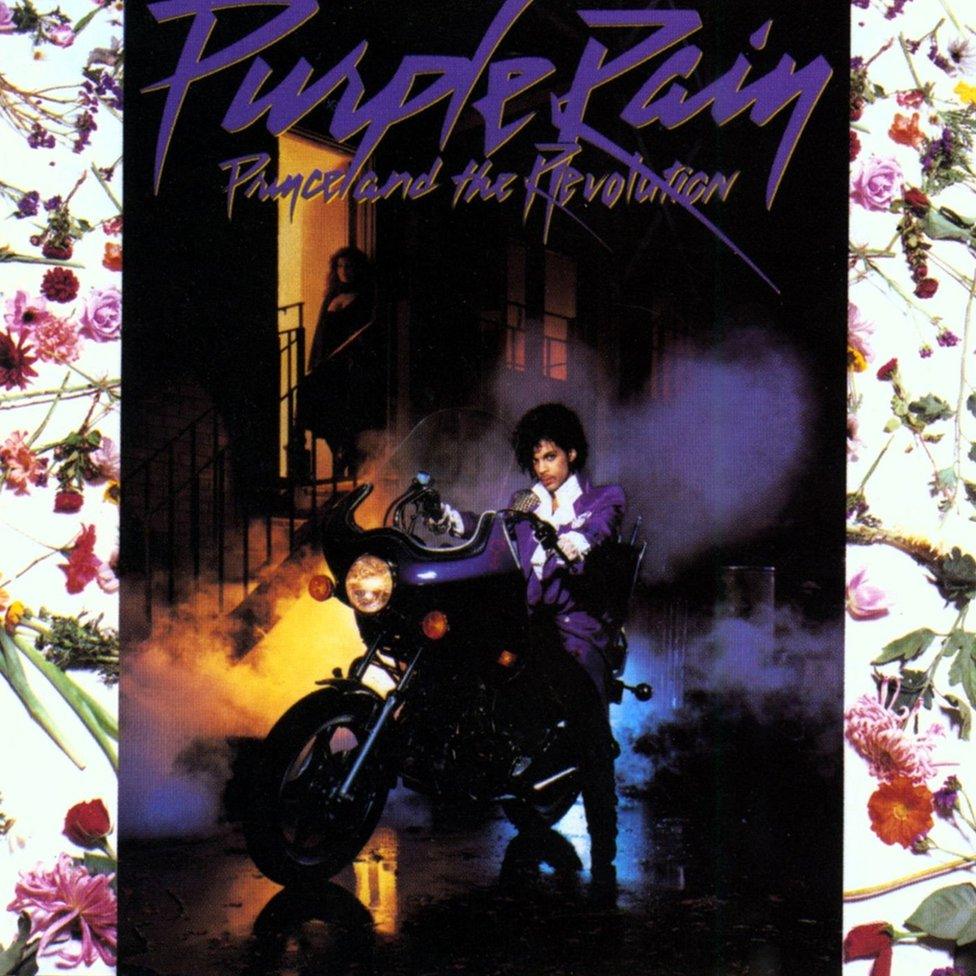
Purple Rain, the film, was as much about Prince's phenomenal live band, The Revolution, as it was about him. For a long time, the soundtrack was the closest he came to releasing a live album.
Several of the songs, including the timeless title track, were captured in concert at the First Avenue nightclub in Minneapolis on 3 August 1983 (notably, it was guitarist Wendy Melvoin's first gig with the band.)
When Doves Cry was the exception. Prince recorded it alone at home. Perhaps the story, loosely based on his parents' failed marriage, was too personal to share. Or maybe it just came to him too quickly to call the band together.
But when he played it back, The Revolution scoffed. Prince had erased the bass from the track, heightening its sense of alienation. "How are you going to have a hit record without a bass?" they teased.
According to his engineer, Prince replied: "Nobody else would have the balls to do this. You just wait - they'll be freaking."
EROTIC CITY (From the single Let's Go Crazy, 1984)
During his purple period, Prince's b-sides were the equal of his hits; and Erotic City is one of his lesser-known classics.
A duet with drummer Sheila E, it's an extended club track based around an infuriatingly catchy bass line that showcases a more playful side to Prince's self-serious public persona. It also features the first instance of Prince speeding up his voice and toying with androgyny.
KISS (From Parade, 1986)
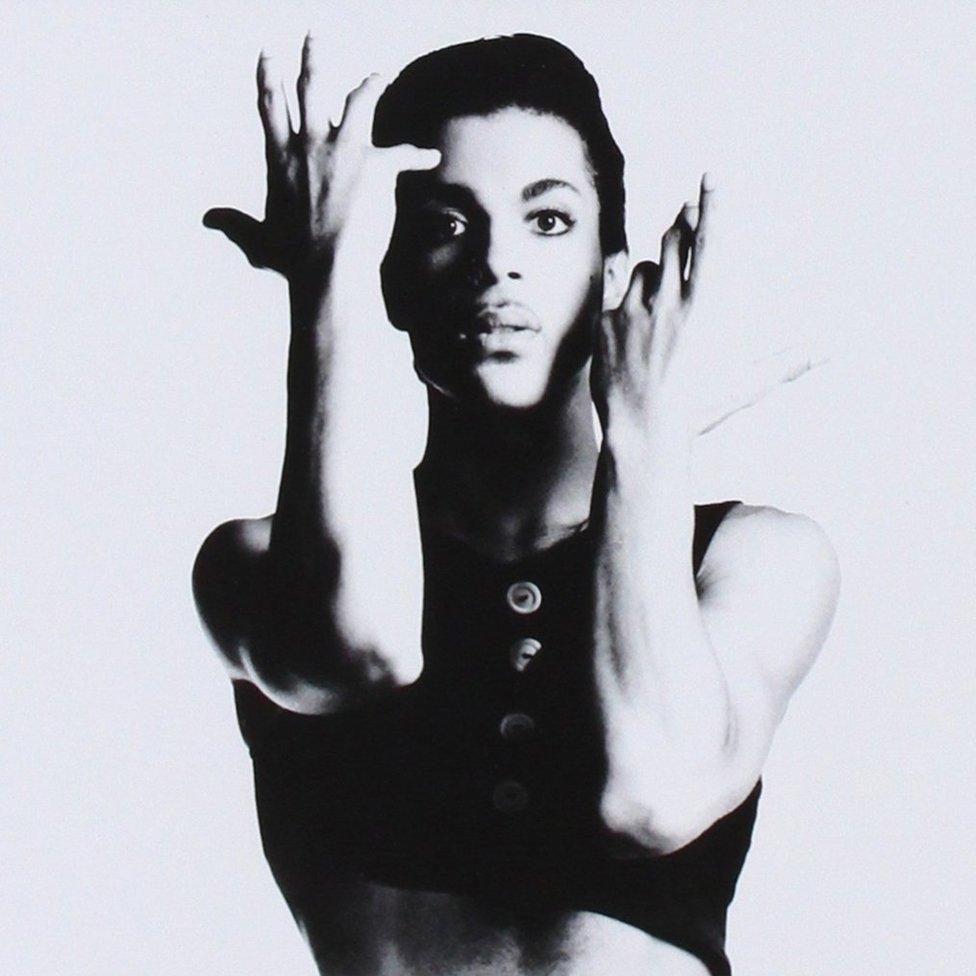
Amazingly, Kiss was originally given away to another Minnesotan band, Mazarati, after Prince floundered over the arrangement. Bootlegs circulated amongst fans suggest it started life as a (beautiful) acoustic blues number, but Prince just couldn't make the song work.
"I had that song for a long time," he said. "Changed it around a lot. Happens all the time."
Once he heard Mazarati's dizzying electro-funk arrangement, though, he demanded the song back - even retaining their backing vocals. It was one of the smartest decisions he ever made.
SOMETIMES IT SNOWS IN APRIL (From Parade, 1986)
A desolate ballad about the death of a loved friend, Sometimes It Snows In April is simply one of Prince's most beloved and devastating songs.
CRYSTAL BALL (From Crystal Ball, 1986/1998)
By 1986, Prince was working on a dizzying number of potential projects - among them a solo record under the pseudonym Camille and a triple album called Crystal Ball.
Both were abandoned and the best tracks compressed into his masterpiece, 1987's Sign o' the Times.
But that meant the loss of Crystal Ball's title track, a 10-minute pop-funk number about making love during the apocalypse (probably). It features several musical movements, a bass solo and an orchestral overture by Grammy-winning composer Clare Fischer.
If you want an unfiltered example of Prince's musical agility and compositional prowess, this is the one.
U GOT THE LOOK (From Sign o' the Times, 1987)
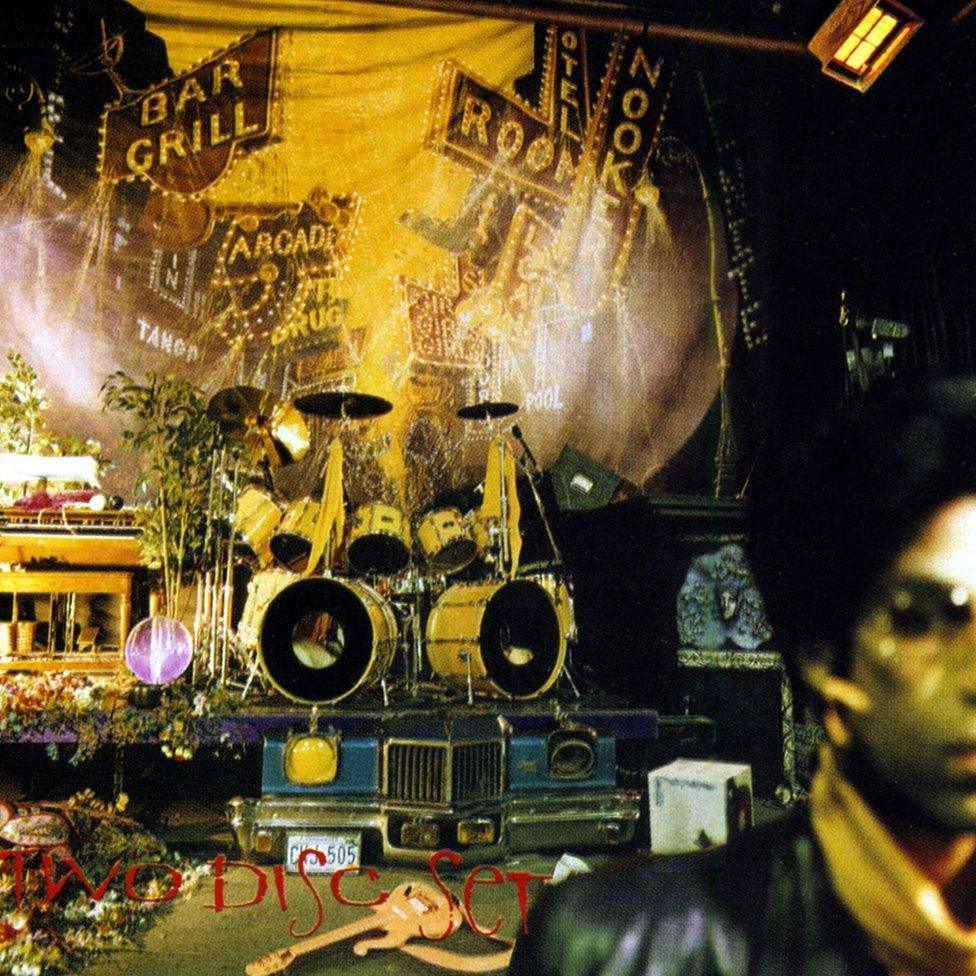
Prince was told he couldn't write the ultimate pop song. He came up with this - a duet/stand-off with Sheena Easton. "Boy meets girl in the world series of love." Not a bad effort.
IF I WAS YOUR GIRLFRIEND (From Sign o' the Times, 1987)
An odd, yet tender, ode to intimacy - in which Prince imagines what it would be like to be his lover's female best friend. "Would you run to me if somebody hurt you, even if that somebody was me," he wonders aloud.
According to engineer Susan Rogers, it was written for his girlfriend Susanna Melvoin - twin sister of Wendy, his guitarist in The Revolution.
"It was a way of asking, 'Why can't I have the closeness you have with your sister? Why can't we be friends too?"
ALPHABET STREET (From Lovesexy, 1988)
Simple, carefree, joyous. Prince climbs aboard his "daddy's Thunderbird" and proclaims "life is too good to waste".
Curious fans should track down a bootleg of Prince rehearsing the song for 1988's Lovesexy tour. It illustrates how the star drilled his band to perfection, cueing in different musical elements - "Just the horns and drums!", "Timbale solo!" on a whim.
Every so often Prince chants "v, w, x, y, z," and the song comes to a juddering halt - before Prince cues the musicians back in with the simple utterance: "Good God!"
It's mesmerising.
JOY IN REPETITION (From Graffiti Bridge, 1990)
Prince's "sequel" to Purple Rain, 1990's Graffiti Bridge, was diabolical - but the soundtrack hides a few gems, including this bluesy ballad, which features one of his most romantic lyrics: "Holding someone is truly believing there's joy in repetition."
GETT OFF (From Diamonds and Pearls, 1992)
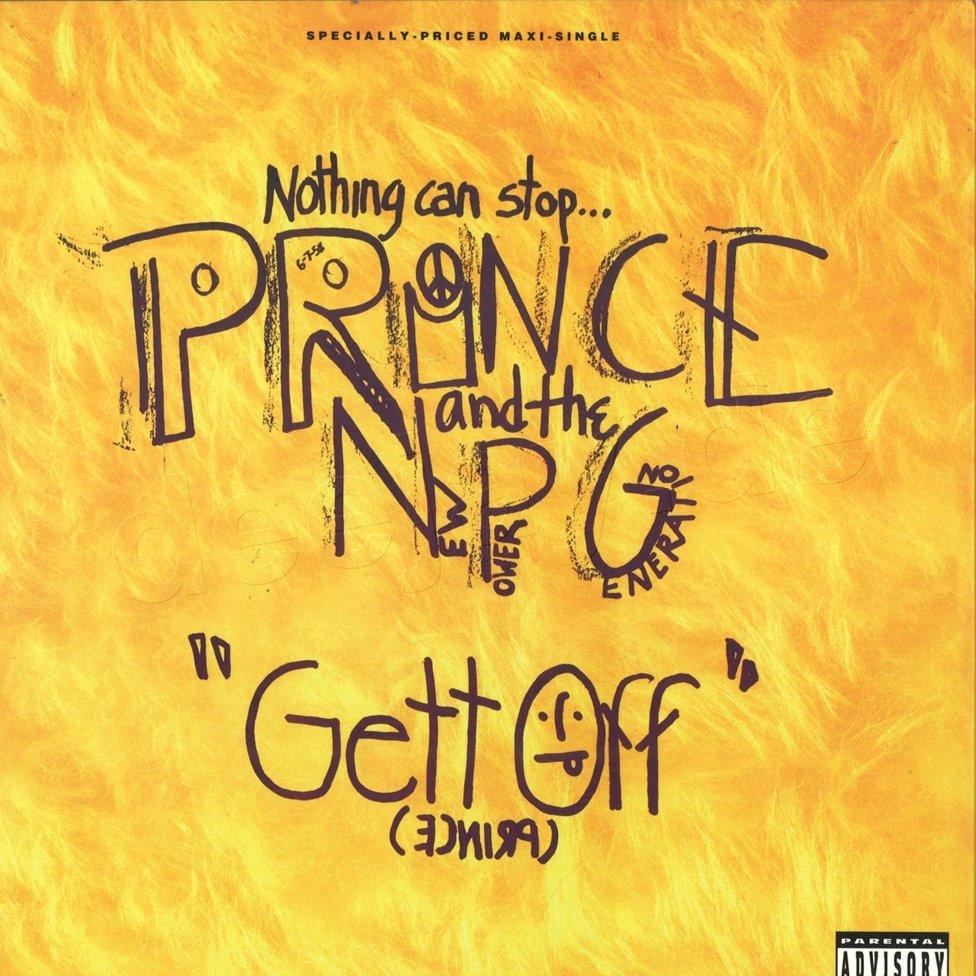
Prince never really worked out how to meet the challenge of hip-hop ("the only good rapper is one that's dead on it," he sang in 1987) - but this was his best attempt.
Recounting an eventful evening out ("23 positions in a one-night stand") Prince is at his lascivious best over this drawling, drooling funk groove.
The full length, 10-minute version is also worth seeking out purely for Eric Leeds' flute solo in the coda.
7 (From The Love Symbol, 1993)
An acoustic song with a mystical Eastern flavour, 7 foreshadowed Prince's decision to "kill" his public persona and adopt a new name - with the video showing the star being assassinated seven times.
A big hit in the US, Prince continued to play it live - often combining it with a cover of The Beatles' Come Together.
BLACK SWEAT (From 3121, 2006)

After a "lost decade" in which Prince battled with his record company and tragically lost a newborn son to clover leaf syndrome, his sound began to resurface via the recordings of R&B super-producers Pharrell Williams and Timbaland.
Reinvigorated, he returned to the studio and beat them at their own game on this tough, nasty groove that made effective use of sonic negative space.
"You'll be screamin' like a white lady," he informed his lover, the charmer.
BREAKDOWN (From Art Official Age, 2014)
The saddest aspect of Prince's untimely death is that he had recently rediscovered his muse, playing incessantly - first with his new, all-female band 3rdEyeGirl, then on an intimate "piano and a microphone" tour.
That coincided with a slew of new material, of which Breakdown was a highlight.
Apparently an autobiographical account of his former excesses - "I used to throw the party every New Year's Eve/First one intoxicated, last one to leave" - it is also a love letter to the person (or higher power?) who set him free.
The vocal performance - literally the sound of a man breaking down - is astonishing. It's a shame more people didn't hear it.
- Published21 April 2016
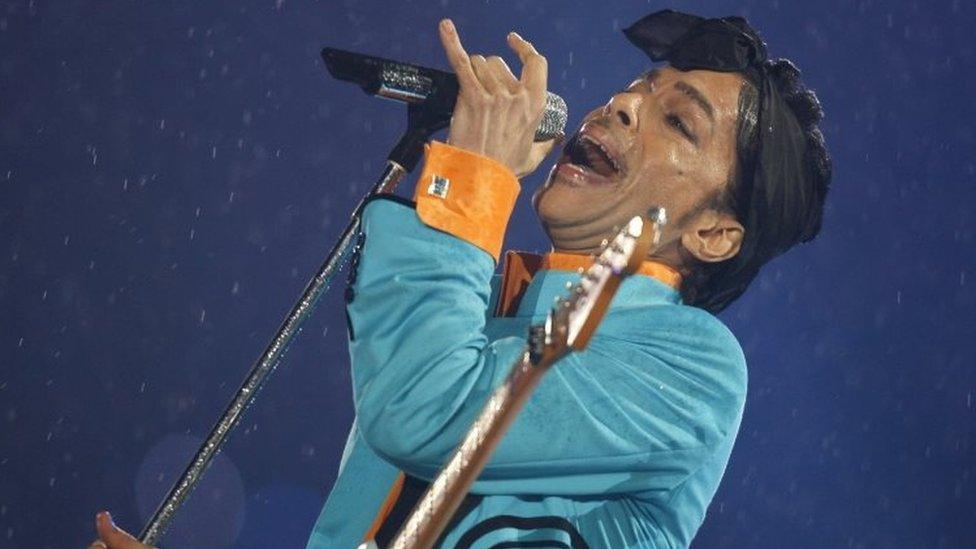
- Published21 April 2016
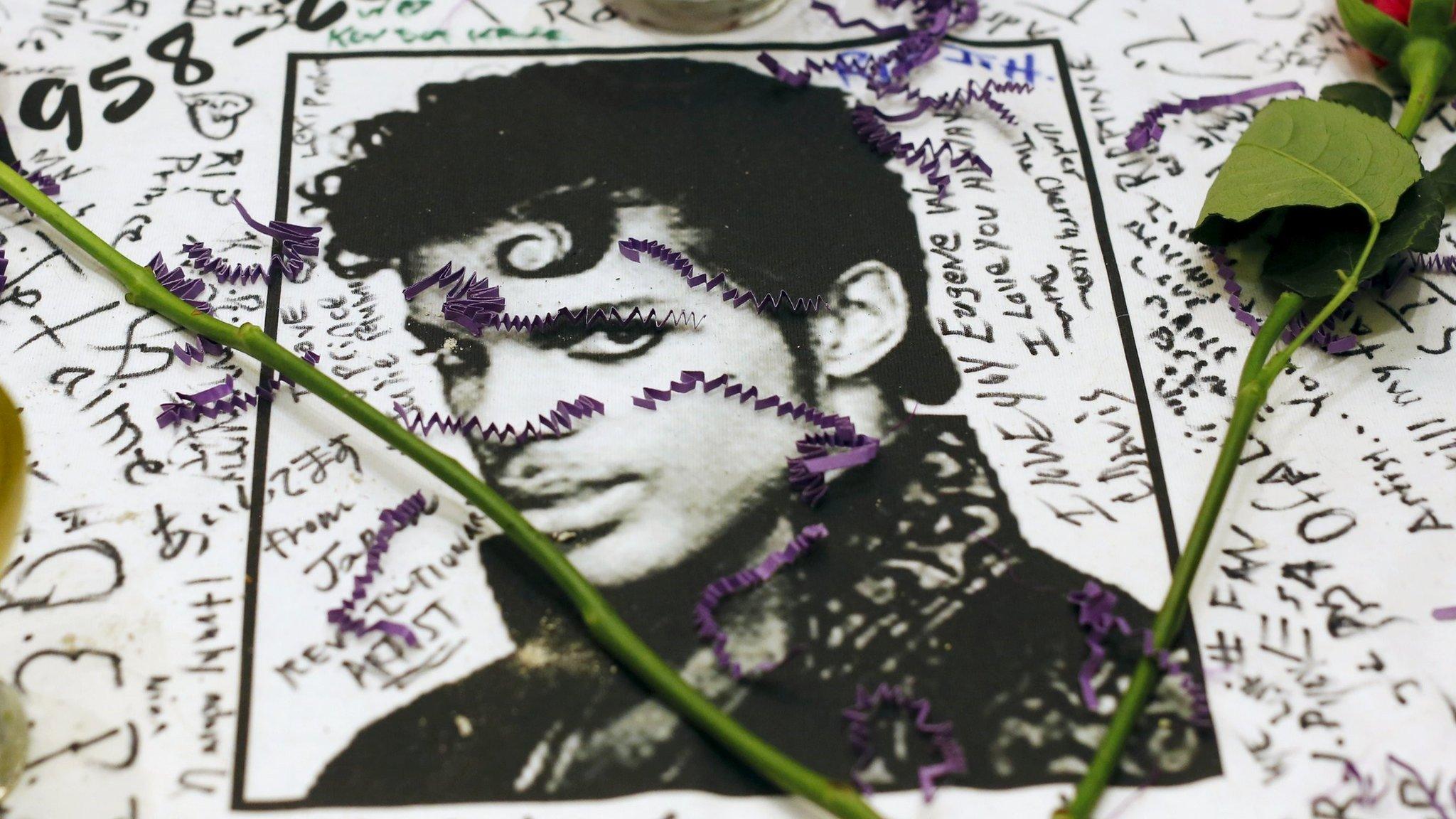
- Published21 April 2016